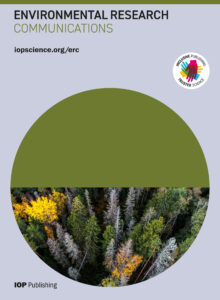ERC特刊征稿|Public Participation in Climate and Energy Policy-Making

The Dutch Citizen Assembly Energy Jan/Feb 2023 Photo credits: ©ETES2050/photographer Olivier Middendorp
特刊详情
客座编辑
- Goda Perlaviciute,荷兰格罗宁根大学
- Christina Demski,英国巴斯大学
- David Bidwell,美国罗得岛大学
- Nicholas Pidgeon,英国卡迪夫大学
主题范围
The goals that public participation is expected to achieve are laudable: better democracy (i.e. normative goal), integration of citizens’ knowledge and expertise in order to reach better decisions (i.e. substantive goal), and more legitimacy and higher public acceptability of climate policies, helping move forward in reaching climate goals (i.e. instrumental goal) (Fiorino 1990). The question is, however, whether and under which conditions can public participation lead to these desired outcomes. Literature across various disciplines has put forward some key criteria to focus on when talking about good public participation – dialogue, diversity, decision-making power, and deliberation (the four Ds of public participation; Perlaviciute 2022). This is a good starting point for further investigation of how these criteria take shape, what are the key pre-conditions, and how they connect to the already-mentioned normative, substantive, and instrumental outcomes of public participation.
For this special issue, contributions are welcome that investigate public participation in climate and energy policy-making from social sciences or related perspectives. We define climate policy broadly and invite contributions that cover climate mitigation, adaptation and related policy fields (e.g. biodiversity or nature-focused policies). We are also interested in public engagement at different scales, such as participation to inform specific policies (e.g. a specific transport policy within a specific city) or broad strategies to reach a policy goal (e.g. Net Zero strategies of a nation). Different forms of public participation are relevant, including, but not limited to town-hall meetings, climate citizen assemblies, consensus conferences, and referenda. Both theoretical and empirical contributions are invited.
The potential research topics include but are not limited to the following:
- Participants’, non-participants’, and organisers’ perceptions of public participation practices
- Motives for public participation, including motives for not participating
- Barriers and facilitators for achieving diversity in public participation practices, including demographic and ‘deep’ diversity (i.e. different values and perspectives)
- Outcomes of public participation on various key aspects: public acceptability of climate policies, polarisation and cohesion, quality of climate policies, decision-making quality, etc.
References:
Dietz T & Stern P C 2008 Public Participation in Environmental Assessment and Decision Making. National Academy Press
Fiorino D J 1990 Citizen participation and environmental risk: a survey of institutional mechanisms Science, Technology, & Human Values15 226-43
Perlaviciute G 2022 Contested climate policies and the four Ds of public participation: from normative standards to what people want Wiley Interdisciplinary Reviews: Climate Change 15 e749
投稿流程
特刊文章与ERC期刊常规文章遵循相同的审稿流程和内容标准,并采用同样的投稿模式。
有关准备文章及投稿的详细信息,可以参阅:https://publishingsupport.iopscience.iop.org/journals/environmental-research-communications/。
作者可登入期刊主页进行在线投稿,选择“文章类型”(Letter/Paper/Topical Review),并在“选择特刊”的下拉框中选择“Focus on Public Participation in Climate and Energy Policy-Making”。
投稿截止日期:2023年12月31日。
期刊介绍

- 2022年影响因子:2.9 Citescore: 3.6
- Environmental Research Communications(ERC)是一本开放获取期刊,涵盖与环境研究相关的所有领域,包括跨学科和多学科的研究。ERC发表推动该领域知识的所有研究结果,包括增量研究、负面结果、无效结果、案例分析、区域性研究和复制研究。
